The Scion IQ Is Dead: Here's Why
Reports last week that the Scion iQ is not long for this world came just weeks after Toyota USA issued a sales release showing that iQ volume was chopped in half in 2014.
One year earlier, Toyota’s sales report showed iQ sales falling 54% from 2012 levels.
• iQ sales decline every month
• Scion sales down 66% from 2006 high
More specifically, U.S. sales of the iQ tumbled in each of the last 24 months. Only once, in December 2012, the iQ’s first opportunity at posting a year-over-year improvement, did it do so, surging 32% compared with its first month on the market.
But the iQ was slow from the start and didn’t possess the kind of initial appeal we often see even from cars which eventually become wildly unpopular. For example, Mercedes-Benz’s Smart Fortwo generated 24,622 in its first year on the market before posting three rapid sales declines, but the iQ’s first full year in America resulted in only 8879 sales.
After the iQ’s best month – March 2012, when 1285 were sold – sales progressively decreased in each of the five following months. As the theory goes, those who really wanted one already had one. And rather unfortunately, there weren’t many who wanted one.
By the fourth-quarter of 2014, the worst ever quarter for the iQ, only 288 copies left Scion showrooms, a 58% year-over-year decline and an 86% drop compared with the fourth-quarter of 2012. In mid-January, Cars.com’s inventory listings show only 186 iQs available.
The main issues which had a negative impact on the iQ included its size, its more spacious competition, its more spacious and more affordable competition, and perhaps even the logo above its front grille. “Physics are physics,” Scion’s Doug Murtha said, “and they’re nervous about driving a vehicle that size.”
Undoubtedly, yet other tiny cars prove capable of finding greater success. The Fiat 500 was on sale nine months before the iQ, for instance, and generated more sales activity in its first ten months than the iQ has done all-time.
The Chevrolet Spark arrived eight months after the iQ. GM sold 85,674 Sparks in the nameplate’s first 30 months, nearly nine times more than the number of iQs sold in the same period.
Toyota’s own Yaris steadily became more unpopular over the last six years, but it sold nearly six times more often than the iQ over the last two years.
Yes, those cars are larger, but this isn’t Europe. The fact that the iQ is small was not to its credit in the United States. Brilliant packaging doesn’t invariably equate with sufficient space, after all.
All four of the potentially competitive cars mentioned so far are either equally affordable or distinctly less expensive. There were other knocks against the iQ. Its continuously variable transmission is poorly calibrated, rear drum brakes seem particularly antiquated when a car is charging a dimensional deficiency premium, the rear seats exist but aren’t genuinely usable, there’s very little interior storage, and fuel economy simply isn’t that impressive. At an EPA highway-rated 37 mpg, the iQ trails many compact cars.
Worst of all, the iQ was brought to America as a Scion, a brand that’s suffering as interest in their all of their products is drying up rapidly. That’s an odd trait in the current American automotive scene. U.S. consumers registered more new vehicles in 2014 than at any time since 2006. Scion sales in 2014 fell to the third-lowest full-year total in the brand’s history, down 15% year-over-year; down 66% compared with 2006.
Would the iQ have been a hit if it was a Toyota? No. But would it have flopped this hard if they’d made it a Toyota instead? No.
The iQ was an experiment, but it certainly wasn’t a brand-saving day in the laboratory.
Timothy Cain is the founder of GoodCarBadCar.net, which obsesses over the free and frequent publication of U.S. and Canadian auto sales figures.
More by Timothy Cain
Latest Car Reviews
Read moreLatest Product Reviews
Read moreRecent Comments
- Billyboy The Big Three, or what used to be the Big Three, have been building sedans in the FWD unibody mold since the 80’s to compete with the Japanese - and failing. The Taurus was the only decent attempt, and even that fizzled out after a few years. Back to GM, There’s no reason to choose a Malibu over a Camry or Accord for normal buyers. The story was the same when it was the Citation, Celebrity, Lumina, and Impala, as it was the same with Ford and Chrysler. GM knows this, as does Ford, and doesn’t care - and rightfully so. Better to cede this time-worn commodity segment to others and focus to where the market has shifted.
- CanadaCraig You are not wrong. Or a dummy for that matter. I also think it's foolish of GM to kill off the Malibu. That said... I think there needs to be full-sized plain jane sedans for sale. And there are none. And haven't been for a long time. A basic BIG car. With room for six. Bench seat and all. Nothing fancy. And a low price to go along with it. I would buy one.
- OCcarguy Back in the 1980s the Mitsubishi Cordia was one of my favorite cars. I would love to see them make cars we could get excited about again.
- Chris I dislike SUVs. I think they are clunky looking and not much in the handling department. I'll take an Audi A4 or BMw three series or even a VW Jetta over any SUV. It I need more interior room for a shot time, I'll rent something bigger.
- Amwhalbi I have a sedan and an SUV, and for pure driving and riding enjoyment, I'll pick my sedan every time. But yes, SUV's are generally more practical for all around usage, particularly if you have only one vehicle. So I think the perfect answer is the sedan hatchback (a la the last Buick Regal) which can still yield the drive and ride or a sedan, yet provide a greater modicum of practical, accessible cargo capacity. Most of the sedans made could (with minor styling changes) easily become 4 door hatchbacks. Oh, yeah, I forgot - Americans don't like hatchbacks, even if they do in Europe...




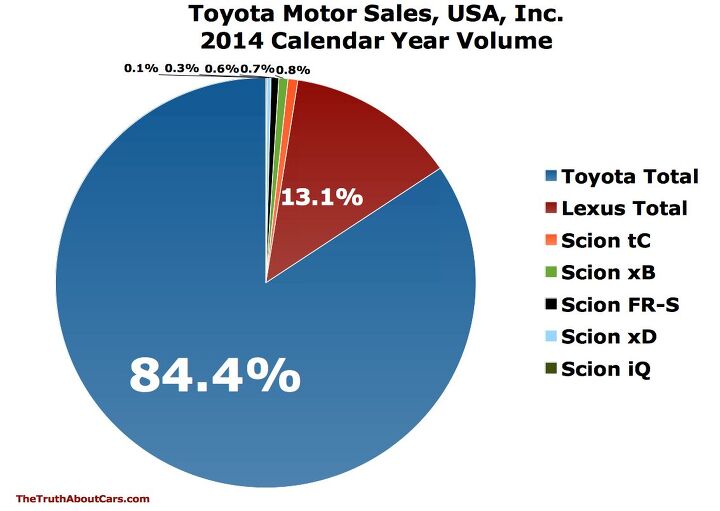















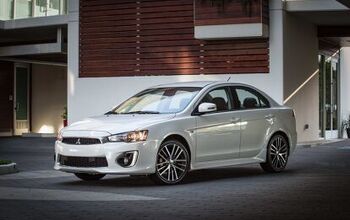
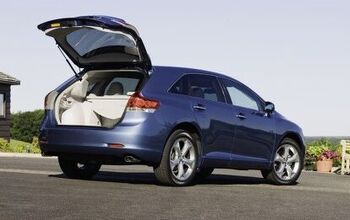

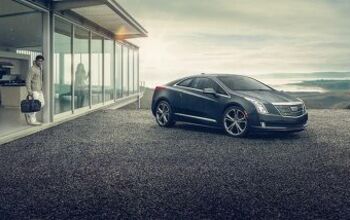
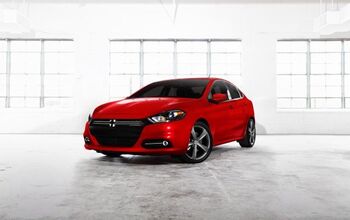










Comments
Join the conversation
The Scion iQ is dead: Here's why Nobody anywhere bought them as Scions or Toyotas because it answered a question nobody asked and looked awkward doing it, had weird seating and a very high price, with a none too deluxe interior, despite Toyota calling it a premium vehicle. A sales dud. Aston Martin, who made the Cygnet based on it dropped it in 2013, saying Toyota was dropping the iQ at the end of 2014. Toyota swore up and down that Aston had it wrong, but, they lied. And here's the proof.
Embarrassingly enough, I had looked at an iQ a few days ago as a sort of commuter car (since I only commute about 5 and a half miles to work). Toyota dealer is asking 12 for it. Its passive interest. The sales person has literally been on me every single day calling trying to get me to buy it. I guess they are even trying to get rid of the used ones fast.